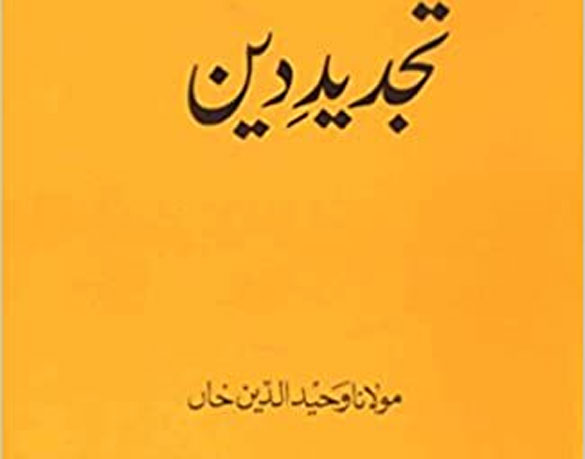
By Mohammad Ali, New Age Islam
27 July 2021
Maulana Wahiduddin Khan Criticizes the Classical Mutakallimīn (Scholastics) For Fashioning Ilm-e-Kalām on Greek Philosophy
Main Points:
• This essay criticizes the reformist hermeneutics of viewing medieval Muslim history as un-Islamic and intellectually barren.
• It argues that knowledge production, here Islamic sciences, is conditioned to its time. Therefore, criticizing medieval Muslims for not developing a knowledge system that could compete with the modern western knowledge system is erroneous.
• It also argues that modern madrasas are crippled by their own definition of Islam and tradition and are not able to be inspired from their own intellectual heritage.
-----
In a time dominated by a worldview different from one wherein Muslim religious and non-religious sciences were nurtured, Muslim intellectuals over the past one and a half centuries have been haunted by a feeling of irrelevance. With modern sciences making most of the knowledge produced in the medieval times outdated, Muslims have been attempting throughout the modern period to make sense of the intellectual legacy, both religious and non-religious, that they inherited from their predecessors. In the process, there have emerged certain behaviours and approaches towards the Muslim intellectual tradition, including consideration of whether it should be embraced in its totality, rejected as a whole, or revived along modern lines. Along with these considerations arose questions as to locating the responsible factor/s for the decline of the tradition. For many intellectuals, they found easy scapegoats in Tasawwuf, ‘ulema class, and al-Ghazali. Nevertheless, ‘ulema, intellectuals, and scholars shouldered the responsibility of making the tradition relatable to contemporary times and called for renewal or reconstruction of the tradition.
There is a significant aspect of this story that we often tend to overlook: how did Muslim reformers view their past? As an answer to this question, it is safe to say that a number of reformers viewed their past, or at least some aspects of it, with contempt, that it was un-Islamic and deviant from true Islamic principles. One of the reasons they felt that way was by comparing their medieval Islamic tradition to the modern, thriving, and powerful western tradition, which had become dominant. The call for renewal itself testifies that Muslim intellectuals accepted the obsoleteness of their tradition, and the emergence of the Muslim apologetics attests to the fact that many Muslims came to believe that Islamic tradition is inferior to the modern and enlightened western tradition.
Such approaches failed to comprehend the fact that a tradition is subjected to historical forces in its formulation. Instead, they held responsible the early Muslim scholars for leaving behind such an outdated tradition. They argued that if the Quran and Sunna would have interpreted so and so—for example, Syed Amir Ali, an Indian modernist who died in 1928, who apologetically argued that Muslim ‘ulema misinterpreted the Quranic verse and retained the practice of polygamy in Muslim societies—we would never have to witness such crisis in Islam. While some Muslim reformers hailed Western intellectuals for their achievements, they at the same time could not appreciate the accomplishments of Muslims in the medieval world. The British historian E.P. Thompson famously described such behaviour as “the enormous condescension of posterity.” He was referring to the negative judgment that future generations apply to actions of the past. Not being able to understand the way of life, historical locations, and necessities, people belonging to future generations think of the people of the past as less intelligent who made mistakes by making so and so decisions. In a similar vein, many so-called Muslim reformers have been criticizing past generations by pointing out what they did wrong without giving enough thought to the inevitability of their times.

An identical example of such an approach can be found in the writings of Maulana Wahiduddin Khan. As a famous and outspoken, but also controversial, scholar in India, Khan has authored numerous books covering a variety of topics related to Islam and Muslims. In one of his books, Tajdīd-e-Dīn, he attempted to lay down a roadmap for resuscitating Muslim civilization. However, in his writings, we often find repugnance for Muslim intellectual history due to the ‘failure,’ as he argues like many other Muslim reformists, to nurture knowledge on pure Quranic foundations. In a chapter on Ilm-e-Kalām in this book, Khan criticizes the classical Mutakallimīn (scholastics) for fashioning Ilm-e-Kalām on Greek philosophy. Given that he does not recognize it as an Islamic Ilm-e-Kalām. He calls for an Islamic Ilm-e-Kalām which should be based on the Quran, not “human knowledge.” Furthermore, he believes that the classical Ilm-e-Kalām “has proved to be a serious hurdle to the intellectual development of Islam.”
Ilm-e-Kalām is a science that emerged during the classical age of Islam. It deals with the metaphysical aspects of Islam and evolved along the lines of the dominant philosophical idiom of the time, which was Greek philosophy. Even though Muslim scholastics employed Greek logic and philosophical concepts to reach certain conclusions, they structured this science under the guidance of the Quran and Sunnah. Therefore, believing it to be un-Islamic is inappropriate. While making such statements we forget that whatever philosophy and knowledge we maintain as Islamic is actually our understanding and interpretation of the sources of Islam. It cannot be final and universal in its nature. Contemporary Muslims are confused with what they regard as Islamic and un-Islamic. If the classical or medieval understanding of Islam is incongruous with their own understanding of the faith, they name it un-Islamic. This attitude is arrogant, and it disregards classical Muslims as a legitimate intellectual community.
Khan’s arguments are conforming with the same behaviour: His arguments are afflicted with the extremist reformist logic which holds that Islam’s revival is possible only if we bypass the classical age and go back to the period of the Prophet and his companions, because the knowledge produced in the classical age was adulterated by the mixing of the un-Islamic ideas. This reasoning is flawed: it presupposes, first, the inability of classical Muslims to interpret Islamic texts without compromising their integrity, and second that the reformist idea of a pure Islamic knowledge is bizarre. Furthermore, the consequences of such reasoning will be tantamount to disqualifying ourselves as rational beings whose interpretations of Islam should be bequeathed by the later generations.
---------------------------------------------------------------------------
Also Read: A Critical Review of Syncretic Islam: Life and Times of Ahmad Raza Khan Barelvi
---------------------------------------------------------------------------
The production of knowledge requires a structure, an idiom, which is bound to its times and geographical locations. The new knowledge must be expressed in a dominant idiom, otherwise it would sound alien to its audiences. When classical Muslims were laying the foundations of Ilm-e-Kalām, the dominant idiom of the time was Greek philosophy. Therefore, they were conditioned to express their own expositions in the language of Greek philosophy. However, as time passed, they devised and constructed their own medium of expression. That is why it would be erroneous to consider the classical Ilm-e-Kalām as un-Islamic. Interestingly, Khan suggests his fellow Muslims to develop an Islamic Ilm-e-Kalām. He explains that this Ilm-e-Kalām should be developed on empirical foundations. Clearly, what Khan is suggesting is that the new Ilm-e-Kalām should be erected on the modern scientific principles of knowledge. In his call, Khan is right that a new Ilm-e-Kalām must correspond to the modern worldview. However, he is wrong in his criticism of the classical Muslim scholastics: He is asking ‘ulamā to develop a new Ilm-e-Kalām based on modern knowledge, just as classical Muslims developed the classical Ilm-e-Kalām based on the available and relevant knowledge of their time. Since the production of knowledge is conditioned in its historical environment, Khan cannot by any means claim that his idea of Ilm-e-Kalām is more Islamic than that of classical Muslims.
Khan further argues that western peoples have ceased to study Greek sciences as they are no longer relevant. Since classical Ilm-e-Kalām is based on those sciences, he believes we should leave it, too, but this argument is misleading as well. It is true that the theories and conclusions put forth by ancient Greeks have been largely disproven or superseded by modern science. However, that trove of ancient knowledge is far too valuable to be discarded. Even now, Greek classics are studied, commented upon, and interpreted in western universities. To many philosophers and intellectuals, Plato and Aristotle are still relevant and inspiring. If intellectuals like Khan should insist on learning something from the West, they should insist on learning to respect and preserve Muslim heritage as western people respect and preserve their own. Therefore, instead of rejecting classical Muslims’ achievements in the field of knowledge, we should try to draw inspiration from them and seek to build new structures on its foundations.
In South Asia, madrasas are the principal institutes where the classical Ilm-e-Kalām is taught through traditional books. Khan is critical of the madrasa curriculum and its pedagogy. Since the inception of the reform movements in Islam, madrasas have been a centre of reformist criticism. It is true that the traditional pedagogy in madrasas is not qualified to relay such a complex subject as Ilm-e-Kalām: It needs to be studied in a more proficient environment. Madrasas have made idols out of the scholars of Ilm-e-Kalām. The classical Ilm-e-Kalām is valuable only with one condition: inspiration. If it creates stagnation, as is the case in contemporary madrasas, reading it for years will not yield any result. It should be treated as a man-made knowledge which has lost its vibrancy, which needs to be renewed and built upon to make sense today. Moreover, studying Ilm-e-Kalām is not a prerogative of ‘ulema, people traditionally trained in madrasas. People outside the ‘ulema class can also excel in the subject and strive to contribute to it.
In the same article Khan has suggested developing an epistemology drawn upon the Quran, to produce knowledge on Quranic archeology, etc. Khan’s demands cannot be materialized unless he and other Muslim intellectuals get the right idea of what is Islamic and what is not Islamic, and that they cannot simply rule out something as un-Islamic which is coming from an external source. Knowledge production is a strenuous and complex task, and it requires all the available resources. To create a profound and vibrant intellectual tradition, modern Muslims need to stop discriminating against knowledge. With the help of this positive approach, they can resume the responsibility of knowledge production that has long been interrupted.
------
Mohammad Ali has been a madrasa student. He has also participated in a three years program of the "Madrasa Discourses," a program for madrasa graduates initiated by the University of Notre Dame, USA. Currently, he is a PhD Scholar at the Department of Islamic Studies, Jamia Millia Islamia, New Delhi. His areas of interest include Muslim intellectual history, Muslim philosophy, Ilm-al-Kalam, Muslim sectarian conflicts, madrasa discourses.
URL: https://www.newageislam.com/ijtihad-rethinking-islam/modern-reformist-islamic/d/125133
New Age Islam, Islam Online, Islamic Website, African Muslim News, Arab World News, South Asia News, Indian Muslim News, World Muslim News, Women in Islam, Islamic Feminism, Arab Women, Women In Arab, Islamophobia in America, Muslim Women in West, Islam Women and Feminism

No comments:
Post a Comment